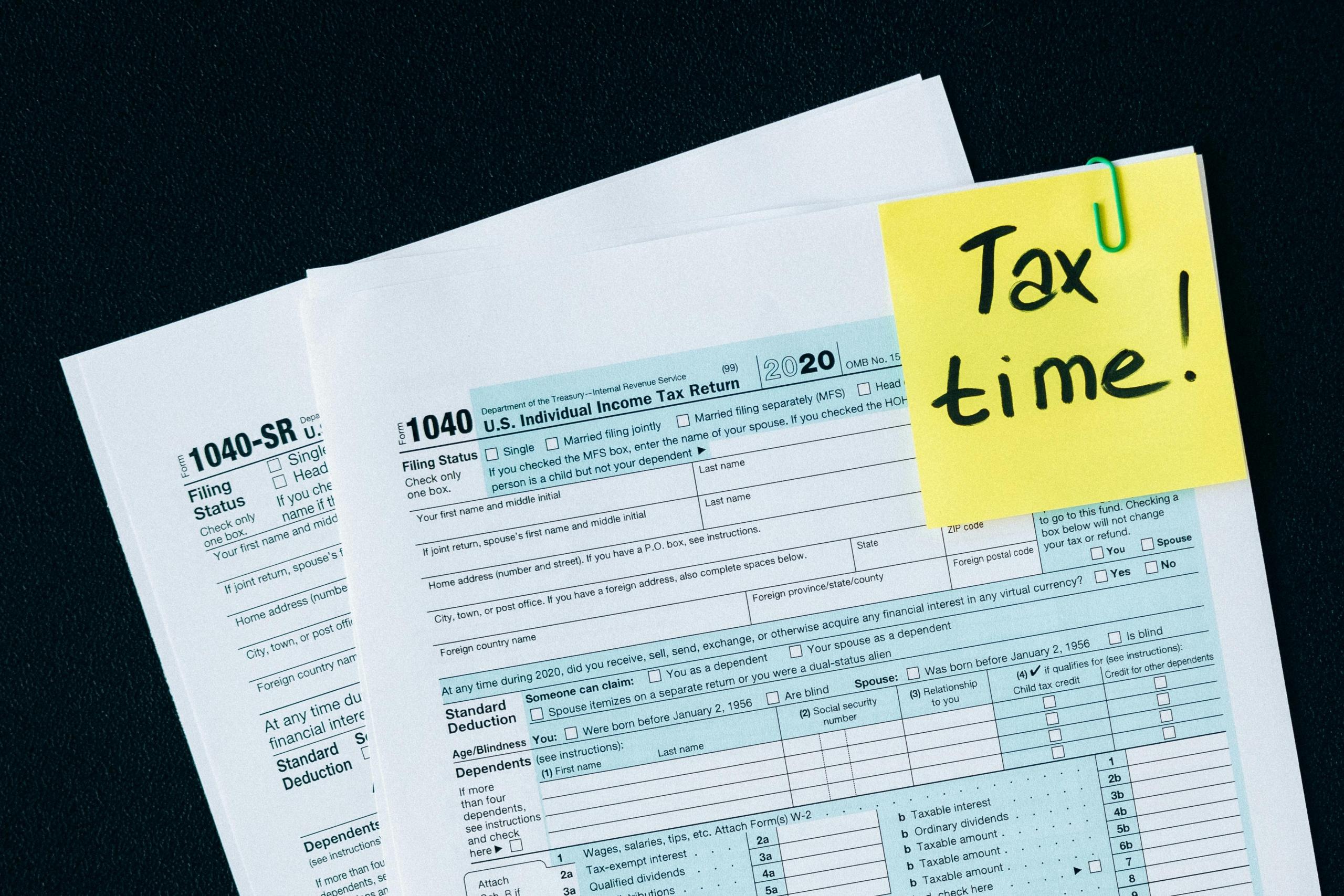They say that there are two things guaranteed in this life: death and taxes. As much of a pain they might be to do and how they can prove to be a burden on your pockets. Unfortunately, tutors are not exempt from paying out a portion of their salaries during tax season, so it’s important that you understand the ins and outs of the process.
The deadline for filing taxes can sneak up on you if you’re not prepared and can consume a lot of the time you’d rather spend tutoring. In order to get yourself in the best position for the next tax deadline, there is plenty that you’ll need to familiarize yourself with if you’re new to this.
That’s where we come in! In this article, we’ll give you everything you need to know when it comes to managing your tutoring income effectively throughout the tax year so that you can spend your time doing what you do best!
Want to give private lessons?
Join the Superprof community and share your knowledge with interested and motivated students.
Understanding Self-Employment Tax for Tutors
If you are planning on going down the path of offering your services as a private tutor, or you already have some classes under your belt, then you’re going to need to understand the concept of self employment tax.
It’s often quite often the case for tutors who have just started out to not know exactly what sort of business they are operating. Thankfully there's an easy way to figure this out, if you're operating without being employed by anyone, then you're automatically classified as self-employed.

So when it comes to your taxes as a self-employed tutor, the IRS categorizes you as a 1099 contractor. Don’t worry if the name alone has you scratching your head; it basically means that you are your own boss, managing your own business or working as an independent contractor.
This definitely comes with a lot of freedom, but the other side of that coin also means that no one will handle your tax withholdings or deductions for you. So, there is an inherent responsibility that is put on your plate when it comes to any of your tutoring or online teaching gigs. If this kind of freedom and flexibility speaks to you, then start learning how to start giving one-to-one private tuition.
While you might view your services as nothing more than a side gig when you are starting out, unfortunately, the IRS has a different mindset. Regardless of what capacity you are working, if you're actively running your tutoring business, the IRS sees you as self-employed, and you’ll need to file your taxes accordingly.
Setting Aside Money for Taxes
Don’t worry if all this talk of taxes has you feeling overwhelmed, you just need to be prepared by the time the next deadline rolls around. All you can do is ensure that you are prepared by the time that day rolls around.
The first thing that you should realize about your taxes is that they won’t be automatically deducted from your earnings each time you give a lesson to one of your clients.
This is why its so important that you don’t get ahead of yourself and put that cash directly into your pocket. In order to prepare for your tax liabilities as a self-employed tutor at the end of the tax year you will need to save a portion of each paycheck in preparation.
If you're interested in picking up a few tips on how to manage your finances as a private tutor, then the video above is a great start.
In terms of arriving at a figure for how much of your hard-earned money you will have to set aside, independent contractors are advised to save around 25-30 percent of your income for this.1
In order to manage this more effectively, it would be wise to consider opening a bank account strictly used for this purpose. By setting up a designated account, you can be sure that none of this money goes missing and that you have every cent you need for your tax obligations.
Working as a tutor presents the freedom and flexibility you desire while teaching a subject you love, but it also means dealing with the uncertainties of managing your business!

So you should also consider keeping a rainy day fund to leave you with a financial cushion in the event of any slow periods of work or an emergency keeping you from tutoring your students.1
Having a cushion set aside for all of this will help secure yourself as a home tutor.
Documenting and Recording Expenses
One thing that you're quickly going to have to get into the habit of as a freelance tutor is keeping records of any business expenses that you make throughout the year.
This will allow you to make the most of any tax deductions you are entitled to while staying on the side of tax laws. You can guess why this is generally everyone’s favorite part of tax!
The IRS mandates that taxpayers show proof of their expenses with receipts serving as this documentation. If you fail to provide records, it could result in the disallowance of deductions, leading to a tax bill.
By keeping detailed documentation stored away in a filing cabinet or in a safe drawer somewhere in your house, you can help yourself report your expenses and, perhaps more importantly, could lead to considerable savings on your taxes!
If the thought of flooding your presses with old receipts isn’t the most appealing thought for you, then you could also consider making the most of some of the digital solutions that are out there to help keep your expense management under wraps.
On the plus side, whatever method you decide on, your efforts will most certainly be rewarded since you’ll have the opportunity to deduct many of the expenses that are directly linked to your tutoring business.

You’d be surprised at how far your deductible costs actually go. All of those supplies, like paper, pens, educational software, or subscriptions you use to provide your tutoring service, will be accounted for.
If you’re enjoying all of this money-saving talk, then you’ll be glad to hear that if you are tutoring from your home, you may qualify for claiming the home office deduction. Basically, this means that you will have a portion of your phone bill, internet charges and the expenses associated with office furniture deducted too!2
Once you have all of this locked down, then you might want to look at some important security checks for home tuition.
Want to give private lessons?
Join the Superprof community and share your knowledge with interested and motivated students.
Handling 1099 Forms
Now let’s get into how you can manage your tax reporting and compliance as this is the part that proves most tricky when you first start out working for yourself.
The forms that you are going to be concerned with when documenting your earnings are 1099 forms. If you have worked for a company in the past then you will begin appreciating all that went on behind the scenes, as they remit your FICA (Social Security) tax on your behalf. The use of an online pay stub maker ensures an organized financial record.
Since you are being paid as a freelancer, you'll need to file as a self-employed taxpayer and take care of that tax payment through your tax filing. This distinction is crucial as it determines whether you'll receive a form (for employees) or a 1099 MISC form (for contractors).3
By taking the time to have some discussions with your clients before diving right into their lessons, you can work on gathering the completed 1099 MISC forms and have them sent off to the IRS by January 31 of that year.
So, make sure to talk to your clients before starting any tutoring jobs and tell them that you will need to collect completed 1099-MISC forms.
Making Quarterly Estimated Tax Payments
While it might seem like a tall task the first time you file your taxes, the sooner you’ll familiarize yourself with the process, it will start to become second nature to you.
Well, in an ideal world, that would be the case, especially considering that you’re going to have to pay taxes on your earnings every quarter. Yes, that's right, that means that you’ll have to estimate your income and send tax payments to the IRS four times a year!
Thankfully, the process is rather simple in practice since you can use the IRS Form 1040 ES for this calculation, which covers both your income tax and self-employment tax obligations.3
The due dates for quarterly estimated tax payments vary slightly each year but generally follow a similar pattern. For the 2024 tax year, the due dates are:
- April 15, 2024 (for income earned January 1 - March 31, 2024)
- June 17, 2024 (for income earned April 1 - May 31, 2024)
- September 16, 2024 (for income earned June 1 - August 31, 2024)
- January 15, 2025 (for income earned September 1 - December 31, 2024)
Bear in mind that there is a level of scrutiny when it comes to filing your taxes. The last thing you want after going through the troubles of dealing with all that paperwork is to hear that some penalties have been imposed for insufficient tax payments.

Generally speaking, you can avoid this situation entirely if your tax owed is less than $1,000 after accounting for withholdings and credits.
We know how hard tutors work to help their students accomplish their academic goals, so it’s important to avoid any unnecessary penalties by getting a strong grasp of the process!3
Getting on Top of Your Taxes as a Private Tutor
In this article, we've delved into the process of managing taxes for tutors, emphasizing the importance of self-employment tax. While it all might seem overwhelming at first, once you file your taxes the first time, you’ll find each subsequent visit to the tax office much easier.
There are plenty of opportunities out there for aspiring freelancers like yourself if you are looking to scale your operations as a private tutor.
The good news here is that private tutors are in greater demand than ever before. No matter what your qualifications and experiences may be, it’s possible to find tutoring jobs for your subject and skills as long as you look in the right place.
It's clear that grasping the duties and opportunities linked to self-employment taxation is crucial for tutors looking to manage their tax affairs. Being knowledgeable and proactive in tax matters goes beyond just following rules; it empowers tutors to take charge of their well being paving the way for a secure and prosperous career in tutoring.
If you feel that filing your taxes is too complicated a process for you, it is advisable to hire an accountant's services. that way, you can place all of your attention on the side of the business that you excel at: teaching!
Once you are ready to become a tutor and set up your business, make sure you understand how to motivate your students to help them become the best they can be.
References
- Forbes Magazine. Tax bracket calculator: What is your top tax rate?. Forbes. https://www.forbes.com/advisor/taxes/tax-bracket-calculator/
- TurboTax® Online Tax Software & Pricing 2023-2024. (n.d.). https://turbotax.intuit.com/personal-taxes/online/
- Self-employed individuals tax center. Internal Revenue Service. (n.d.). https://www.irs.gov/businesses/small-businesses-self-employed/self-employed-individuals-tax-center
- 1099 tax calculator. Estimate Your Self-Employment Taxes. (n.d.). https://www.everlance.com/tax-calculator
Want to give private lessons?
Join the Superprof community and share your knowledge with interested and motivated students.
Summarize with AI:






Thank you – this was very helpful for me as a first-time filer!
I appreciate the article very much because it is tailored for tutors.
Thank you for all the pointers.
If I tutor students on the internet outside my home state of New Mexico, do I still have to pay Use or sales taxes on that income? I do pay Use taxes on my New Mexico students, but not on students I Zoom with in other states. I just don’t want to find out that Use tax laws may change.
Thanks so much! – Jan
Hello Jan, thanks for the message. Please send us a message at hey@superprof.com and we will try our best to assist you!